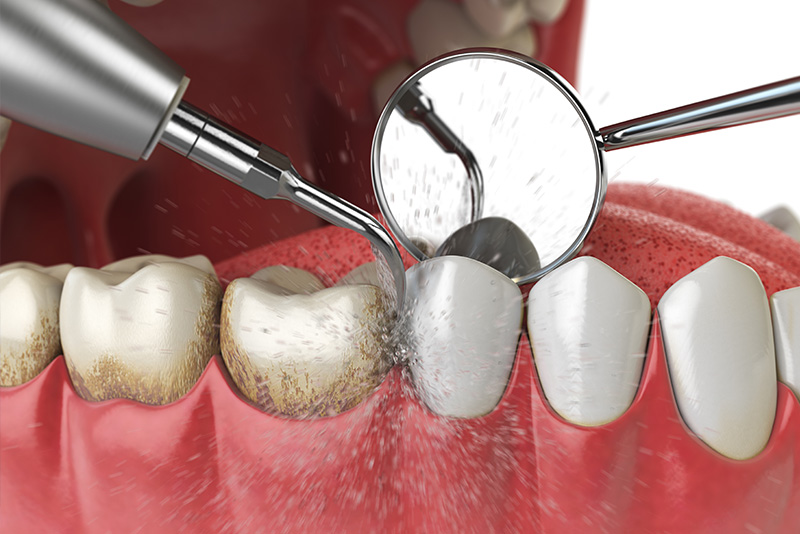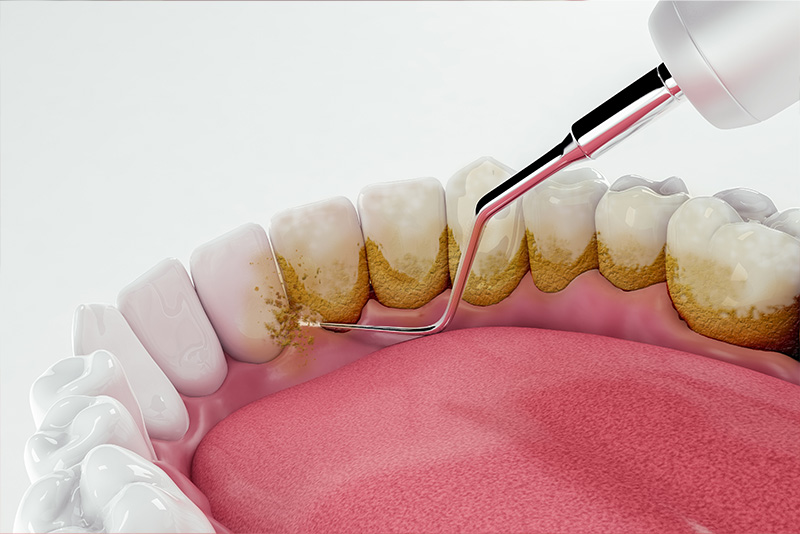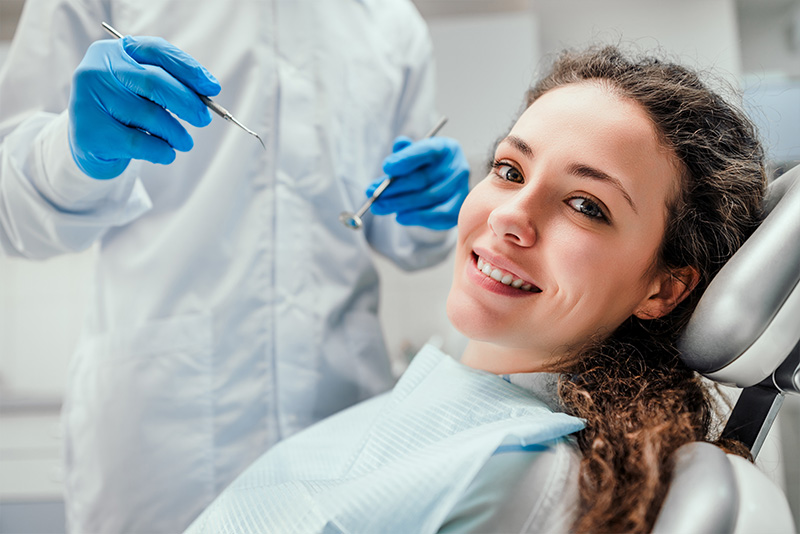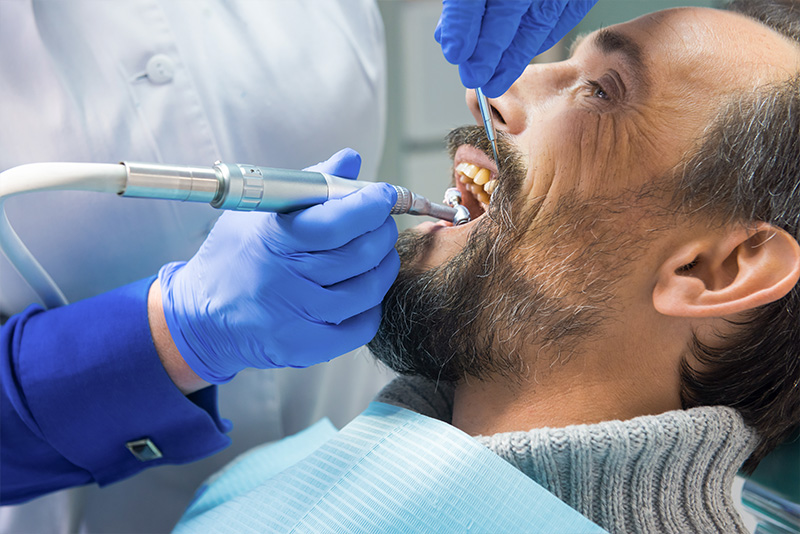While maintaining a healthy smile depends upon keeping your teeth and gums clean at home, even those with the most diligent brushing and flossing routines can find it challenging to reach every nook and cranny between the teeth and gums. For this reason, we emphasize the importance of routine dental cleanings.
Since plaque harbors the bacteria responsible for cavities and gum disease, its removal is essential for maintaining good oral health. Our office encourages patients to come in twice a year for professional dental cleanings. In this way, our hygienist can remove any accumulated plaque, tartar, and food debris from between the teeth and gums.
Routine dental cleanings offer the following benefits:


Dental cleanings are performed using either hand instruments or with an ultrasonic scaler. While hand instruments are designed to scrape harmful deposits off the surface of the teeth, an ultrasonic scaler uses a steady stream of water coupled with varying vibration frequencies to clean them. For best results, our hygienist may use both methods in combination with each other.
Because a routine dental cleaning involves the superficial areas around the neck of the tooth and stays above or just slightly below the gumline, it's typically a pain-free and simple procedure. For those patients with sensitive teeth and other dental issues that may cause discomfort during a cleaning, topical numbing gels or local anesthesia are used.
Once the areas around the teeth and gums have been cleaned, our hygienist will then polish your teeth to remove superficial stains. In addition to going home with a smile that feels fresh and clean, we'll also provide you with instructions on the best methods of brushing and flossing and useful dietary guidance to support optimal oral health.
Remember, dental cleanings play an essential role in preventive care. At the office of Sunlight Dental Group, we help patients establish a strong foundation for a lifetime of good oral health.


A dental cleaning, also known as prophylaxis, is a preventive procedure performed by a dental hygienist to remove plaque and tartar buildup from your teeth, helping to prevent cavities and gum disease.
Most dental professionals recommend having a dental cleaning every six months, but your dentist may suggest a different schedule based on your oral health needs.
During a dental cleaning, a hygienist will examine your mouth, remove plaque and tartar, polish your teeth, and may provide fluoride treatment. They will also discuss any oral health concerns you may have.
Most patients experience minimal discomfort during a dental cleaning. If you have sensitive teeth or gums, let your hygienist know, and they can take steps to ensure your comfort.
Yes, regular dental cleanings can help eliminate the buildup of bacteria that causes bad breath. Maintaining good oral hygiene can significantly improve breath freshness.
After your dental cleaning, it’s important to maintain good oral hygiene by brushing twice a day, flossing daily, and visiting your dentist regularly for check-ups and cleanings.
Many dental insurance plans cover at least one or two dental cleanings per year. It's best to check with your insurance provider to understand your specific coverage.
Regular dental cleanings help prevent cavities and gum disease, reduce the risk of oral infections, and keep your smile bright and healthy.
There’s usually no special preparation needed, but it’s helpful to arrive a few minutes early to fill out any necessary paperwork and inform the hygienist about any changes to your health or medications.
You can typically eat and drink after a dental cleaning, but it’s advisable to wait at least 30 minutes before consuming hot beverages or foods to avoid sensitivity if fluoride was applied.